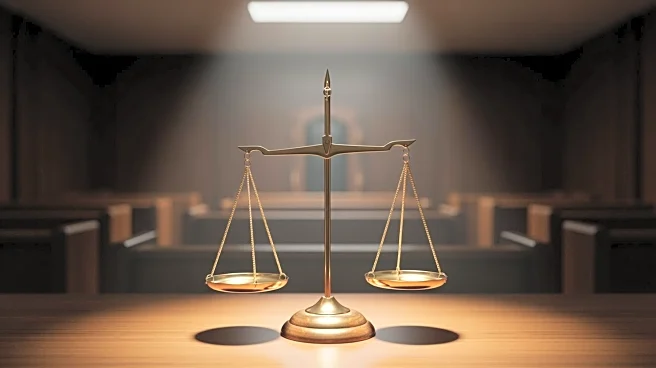What's Happening?
U.S. Border Patrol Commander-at-large Gregory Bovino has been summoned to appear before a federal judge in Chicago. The hearing, scheduled for 10 a.m. Tuesday at the Dirksen Federal Courthouse, is part
of a lawsuit concerning the treatment of protesters during a federal deportation campaign known as 'Operation Midway Blitz.' Bovino, a prominent figure in the Trump administration's deportation efforts, is accused of using tear gas on a crowd in the Little Village neighborhood without proper justification, allegedly violating a prior court order. This order, issued by U.S. District Judge Sara Ellis, prohibited the use of riot control weapons without adequate warning or against non-threatening individuals. Bovino's actions have drawn significant attention, particularly following a controversial Supreme Court ruling that allowed federal agents to stop individuals based on race and language. The Department of Homeland Security has not confirmed Bovino's attendance, but court officials expect live testimony.
Why It's Important?
The court appearance of Gregory Bovino underscores ongoing tensions between federal immigration enforcement and civil rights protections. The case highlights the broader implications of federal deportation policies and their enforcement in urban areas like Chicago. The outcome could influence future operations and the legal boundaries of federal agents' conduct during protests. This situation also reflects the contentious nature of immigration enforcement under the Trump administration, raising questions about racial profiling and the use of force. The legal proceedings could set precedents for how similar cases are handled, impacting both federal agencies and immigrant communities across the U.S.
What's Next?
Judge Sara Ellis has several options if she finds Bovino's actions in contempt of her orders, including potential sanctions. The hearing may lead to further legal scrutiny of federal deportation tactics and could prompt changes in how such operations are conducted. The case may also influence public opinion and policy discussions on immigration enforcement, potentially affecting future legislative or executive actions. Stakeholders, including civil rights organizations and immigrant advocacy groups, are likely to monitor the proceedings closely, as the outcome could have significant implications for their efforts to protect immigrant rights.









